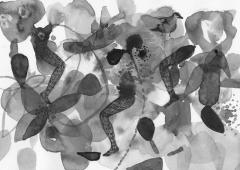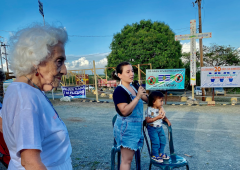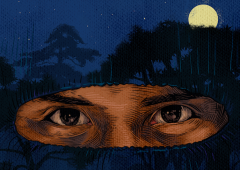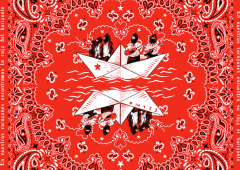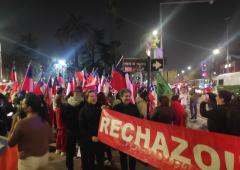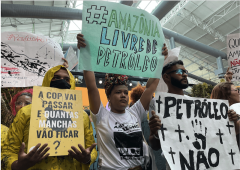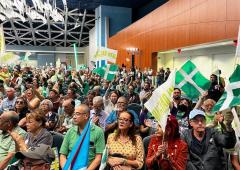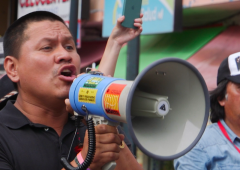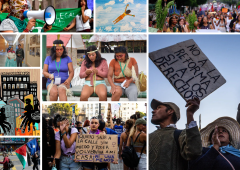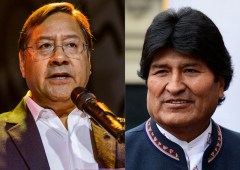News & Analysis
Following the abolition of the Army, narratives celebrating Central America’s most peaceful nation have masked a militarized policing model shaped by U.S.-sponsored counterinsurgency.
A Puerto Rican demilitarization activist reflects on the decades-long struggle to urge U.S. forces to withdraw from the island and the ongoing challenges Viequenses face today.
For decades, the EZLN has informed struggles down and up the continent. Amid climate chaos and endless war, they continue to imagine and create better worlds.
Durante décadas, los zapatistas han servido como luz orientadora para luchas a lo largo del continente. En medio del caos climático y la guerra interminable, siguen imaginando y construyendo mundos mejores.
A collection of the best original photography NACLA published online in 2023, documenting struggles for memory, Indigenous rights, Palestinian solidarity, and defense of land and territory.
Once again, Chileans voted no on a constitutional referendum. The Pinochet-era constitution endures while the path to reform remains uncertain.
New calculation shows CO2 emissions from burning Equatorial Margin oil are 3 times Brazil’s goal for 2030.
The Puerto Rican Independence Party’s (PIP) latest assembly marks a turning point in electoral strategy and a challenge to the colonial paradigms that have long held the archipelago hostage.
Kichwa activist Leo Cerda discusses the crucial role of national and global alliances in transitioning from extractive fossil fuels to greener alternatives.
[CLOSED] NACLA is currently accepting proposals for an issue on disappearance in Latin America and the Caribbean. Send us your pitches by January 4, 2024.
Spanning 12 countries and themes of anti-Blackness, Indigenous rights, defense of democracy, extractivism, the Latinx diaspora, and more, join us in taking a look back at our most memorable web stories of 2023.
Las luchas internas en el Movimiento al Socialismo amenazan con dividir al partido, y los movimientos sociales históricos de Bolivia se ven obligados a elegir bando.

